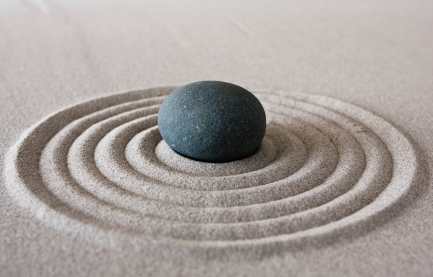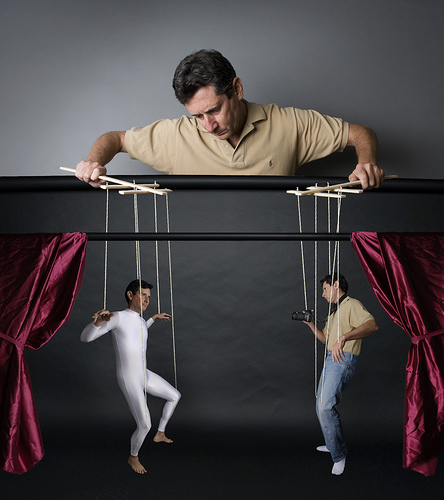
Today we ask that you do nothing.
This may not mean what you believe it means.
Doing nothing does not mean you are inactive.
Even when you sit still or lie down, a lot is going on with you. Your body is doing many things, your mind is doing many things. You always breathe, your blood circulates, your organs function, your food digests. When you sleep, your brain is active. So you are not capable of inactivity.
Doing nothing means letting go of the need to “do something.” More specifically, it is letting go of the ego’s need for control.
When people are awake, they believe that they are constantly supposed to be “doing something.” They must “keep busy.” So people are always running around doing something.
They say to themselves: “I should run this errand,” or “I should write this email” or “I should go work out at the gym.”
And then they stress and worry about doing all of those things in the right way, while in a hurry to get on to the next thing. While they do one thing, they are already thinking about the next ten things.
All this comes from a need to control your life. If you are always busy and stressed and worried and strategizing about all the things you must do, then you believe you are “doing something.” You believe you are controlling your life situation.
Doing nothing is letting go of that control. Really it is letting go of the illusion of control, because the truth is, your ego is not in control of anything, even if it likes to think it is.
It is hard to describe the state of not-doing to someone who only understands what it is like to operate out of the ego’s need to always be doing something and stay in control.
Those who meditate may experience the state of not-doing. It is a deep relaxation of the mind. It is simply being present with what arises, without trying to control anything.
People who experience “the flow” also know what it is like to “do nothing.” Athletes, artists, musicians, mathematicians who get totally lost in their work, losing their sense of self and feeling part of something much bigger that is moving through them — that is the state of not-doing.
So you see, “doing nothing” does not mean that nothing is happening. Someone “in the flow” appears to be doing something.
But “flow consciousness” is a very different thing than “ego consciousness.”
The ego mind looks at athletes and artists and scientists and believes that these people really are doing something, that they are totally in control of their experience. That is why the ego is very obsessed with prizes and awards for athletic and artistic and scientific achievement. “Look, I did this! It was all me! I was in control of everything the whole time!”
But this is a lie, and it is very misleading.
When people set out to imitate “geniuses,” attempting to replicate their success, inevitably it never works out. You get a cheap copy. It doesn’t feel right, and people can always tell the difference.
This is because the “genius” was in the state of not-doing at the moment of his great creation. He was doing nothing.
Whereas the imitator is trying to do something.
It is difficult to explain.
Consider the mother who gestates an infant. The mother is “doing nothing.” Something miraculous is happening, but she is not doing it. She is not in control.
Miraculous things happen when you do nothing.
But as soon as the ego steps in and asserts itself, when it tries to “do something,” the magic is gone.
That is why people say “lightning can’t strike twice.” The magic of being in the flow state cannot be forced or replicated by the ego mind, no matter how hard the ego tries.
However, it is possible to live from a state of not-doing. It is possible to cultivate “flow” in your daily existence.
However, you will be asked to give up a few things:
You must give up your need to be in control.
And you must give up your need to take credit for your accomplishments.
When you are not-doing, when you do nothing, and the life force moves through you, the way it does through artists, athletes, and scientists who are “in the flow”…
… it is not you who does this thing. Not the Little You, the Ego. The ego is not in control, when you are in the flow.
Once you are out of the flow, the ego will reassert itself. It will say it was in control the whole time. It will take credit for everything.
The moment this happens, you shut off the flow.
This is the nature of all creative blockage. It is why great artists often lose their spark as they age, and rest on their laurels.
If you are an artist who wishes to create without blockage, take note of this truth:
Do not believe you are in control of your creation.
And do not take credit for it.
You may let other people believe that “You did it.” But you must know otherwise. It is the only way to keep the magic alive.
The great sages live from this place. They know that they are not in control of anything. They do not take credit for anything. They do nothing, and surrender to the life force that moves through them, and all creation.
All spiritual quests end here. In the realization that there is nothing to seek, no Grail to grasp. Nothing to do.
Here is a practice that can help you to “do nothing,” and so cultivate flow:
As you go about your day, remind yourself that you are doing nothing.
“I do nothing, and breakfast is made.”
“I do nothing, and the car finds a parking space.”
“I do nothing, and the email is written.”
This may sound very crazy. The ego will kick and scream at this, and say it is nonsense.
But if you gently remind yourself that you are doing nothing, that something bigger is moving through you, then magic will arise in your life.
When it does, don’t try to control it, or take credit.
It is okay if you don’t believe this. Play with it.
“I do nothing, and my bills are paid.”
“I do nothing, and my mind and body get a good night’s sleep.”
Notice any resistance that comes up.









